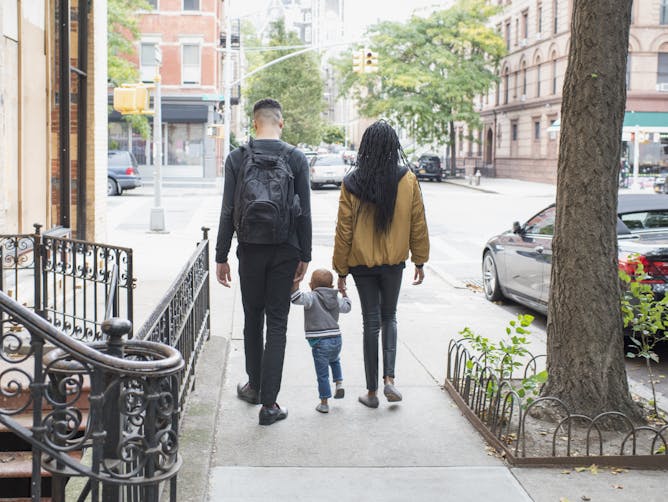|
In certain circles, there’s been lots of talk about languishing and flourishing during the pandemic. Positive psychologists advise people to do things like practicing gratitude, performing random acts of kindness and savoring the little things to help you feel like you’re living your best life – flourishing, in other words.
There’s nothing wrong with taking these kinds of concrete steps, according to researchers Sarah Willen, Abigail Fisher Williamson and Colleen Walsh. “But tips like these are probably most helpful to people whose lives and livelihoods are already secure,” they write. Based on in-depth interviews with 170 Clevelanders from all walks of life, they suggest that “without the conditions that enable flourishing, psychological exercises will inevitably fall short.”
How much control does any one person have over their own well-being, after all? Willen, Williamson and Walsh write that for those facing systemic problems like structural racism and lack of access to things like healthy food, good education and a safe place to live, psychological tactics promoting flourishing can only go so far – and they let society off the hook.
Also today: Ukrainian teens talk about being at war
Water fights herald the Southeast Asian new year
Will Smith’s slap is a symptom of honor culture
|

Who gets to flourish and who doesn’t?
Tony Anderson/DigitalVision via Getty Images
Sarah S. Willen, University of Connecticut; Abigail Fisher Williamson, Trinity College; Colleen Walsh, Cleveland State University
For people who struggle to meet their basic needs, it will take a lot more than simple psychological exercises to flourish. It will take systemic change.
|
Environment + Energy
|
-
Jennifer Weeks, The Conversation
Many people want to know about practical suggestions to help slow climate change. Effective action starts at home.
|
|
Science + Technology
|
-
Eric Pauley, Penn State
Cloud services are convenient, but if an organization isn’t careful about how they use them, the services can also give data thieves an opening.
-
Braidee Foote, University of Tennessee
A veterinary ophthalmologist explains what’s going on.
-
Yannis Papastamatiou, Florida International University
Researchers have discovered that great white sharks are more social than previously thought. Using specialized tags, they tracked six sharks and found that some stay close to each other when hunting.
|
|
Arts + Culture
|
-
H. Colleen Sinclair, Mississippi State University
While you’ll often hear people say that violence is never the answer, in some communities violence is viewed as a perfectly reasonable response to personal slights.
|
|
Politics + Society
|
-
Alexander Motyl, Rutgers University - Newark
A group of Ukrainian teens writes about what they will do when the war ends. ‘The first thing that I would do is play the piano. I will play as long as I can,’ writes one.
-
Mathias Bernard, Université Clermont Auvergne (UCA)
The dynamics of the “strategic vote” in France have amplified the restructuring of the political field around three major poles: centrist, identitarian and far left.
|
|
Ethics + Religion
|
-
Nicole Archambeau, Colorado State University
Churches’ struggles to respond to the plague and constant warfare in the 14th and 15th centuries helped shape the kinds of Christianity in the world today.
|
|